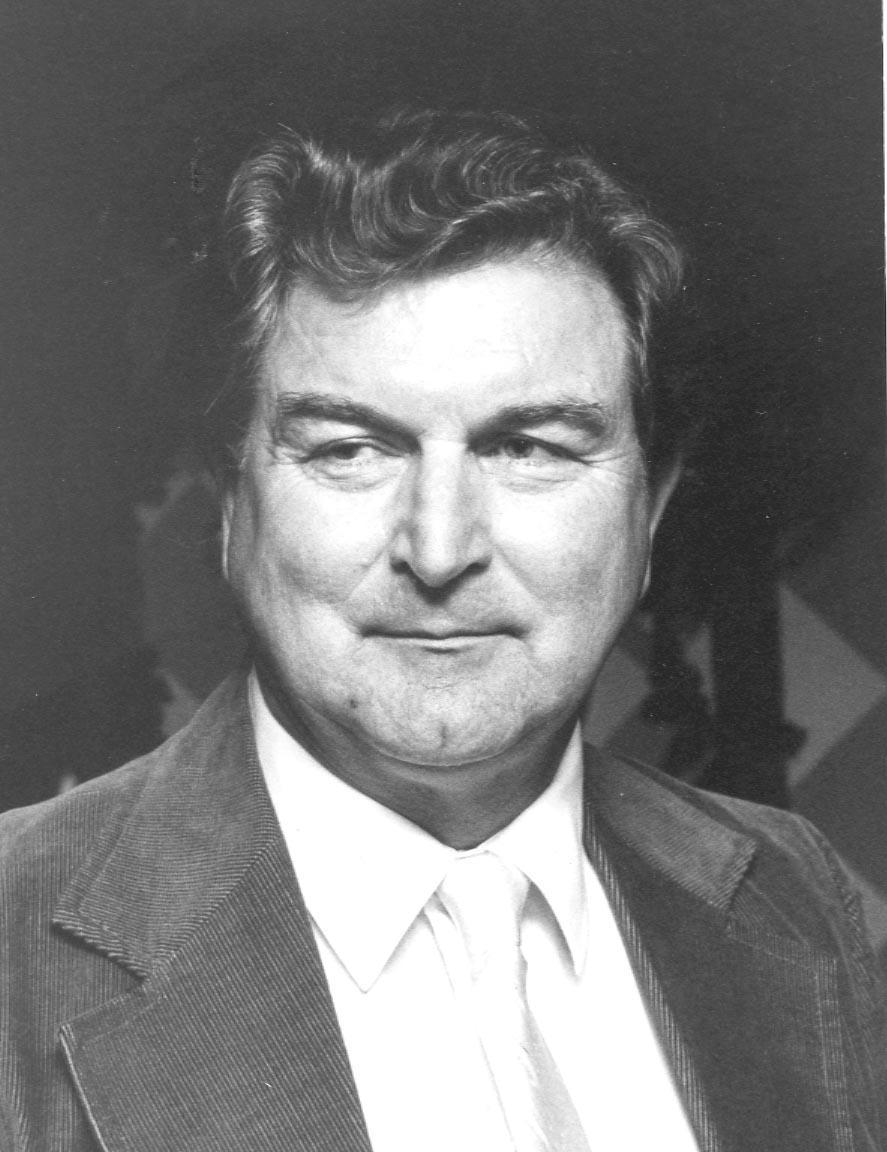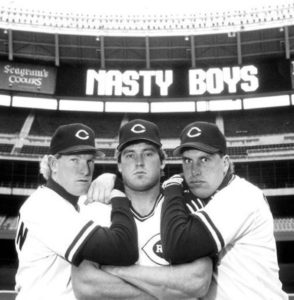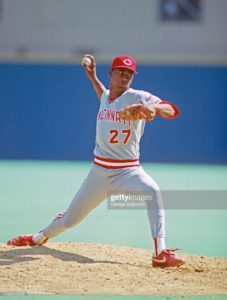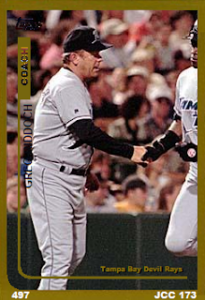Larry Rothschild is currently (February 2021) the San Diego Padres’ pitching coach. He’s also been a big-league manager with Tampa (1998-2001), the Yankees’ pitching coach (2011-2019), and a coach for the Reds, Marlins, and Cubs.
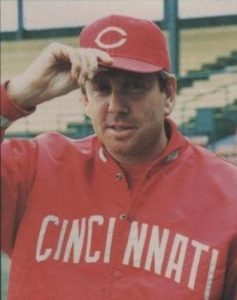 Larry was signed by the Reds as a free agent in June 1975, and he spent parts of two big-league seasons with Detroit during an 11-year career as a pitcher in pro ball. He was 66-46 with 50 saves in the minor leagues.
Larry was signed by the Reds as a free agent in June 1975, and he spent parts of two big-league seasons with Detroit during an 11-year career as a pitcher in pro ball. He was 66-46 with 50 saves in the minor leagues.It all got started, though, when he pitched in relief for Greg Riddoch and The Little Red Wagon in 1975.
Larry Rothschild I signed out of Florida State, with the Reds. They sent me to Billings to start for, I think, the precamp stuff. And then probably less than 10 games into it, they sent me to Eugene from Billings. That’s when I met Greg and played on the 1975 team.
Jim Haught You were apparently only at Billings for a couple of weeks, and signed right after Florida State lost in the College World Series?
LR Yeah.
JH How many seasons did you play for Florida State?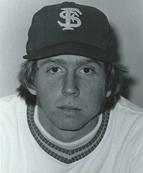
LR Three years.
JH Was that when freshmen were not eligible, or did you leave after your junior year?
LR I left pretty much after my junior year. I had almost enough credits to graduate, so I just went back one semester to graduate.
JH How did a guy from Chicago end up at Florida State? I got a lot of background out of Mike LaCoss’s old iBaseball Channel interview, but it doesn’t really say how you went from Chicago to Tallahassee.
LR Well, I just kinda went through stuff. And I mean, I had graduated a year ahead of myself in high school – a year ahead of the age. So I was young and small, and I ended up going to Bradley University in Peoria. Didn’t play there, came home and played that summer, and had grown and pitched really well that summer. And a scout for the Reds – I gotta remember his name –
JH George Zuraw?
LR George wasn’t the scout in Chicago. Bill Clark was the initial guy, and then Zuraw ended up following me at Florida State. They recommended me to Florida State, and I was lucky enough to play there.
JH You were essentially a walk-on, then?
LR I walked on, and I ended up the next year getting some scholarship money.
JH You said, because you were younger and smaller until your senior year of high school, you had been “playing up” quite a bit. There came a time in a Legion game when you felt like everything kind of came together and it clicked for you, and you were on your way after that.
LR Yeah, it was what they used to call a semipro league in Chicago. It just kind of came together, and that’s when I realized that I really needed to keep pitching.
JH Had you been a pitcher pretty much, or were you the quintessential guy who, as a kid, played short and hit third all the time?
LR No, I pitched a lot. I mean, I played other positions, but at the end of the day I knew it was going to be pitching, so —
JH Always had a good arm?
LR Yeah, I mean, I was just small; really small. I didn’t grow. I mean, I was not only a year ahead of myself [agewise], but I didn’t really grow.
I grew up well after my senior year, really.
JH And so, three years at Florida State. Were you a starter for them?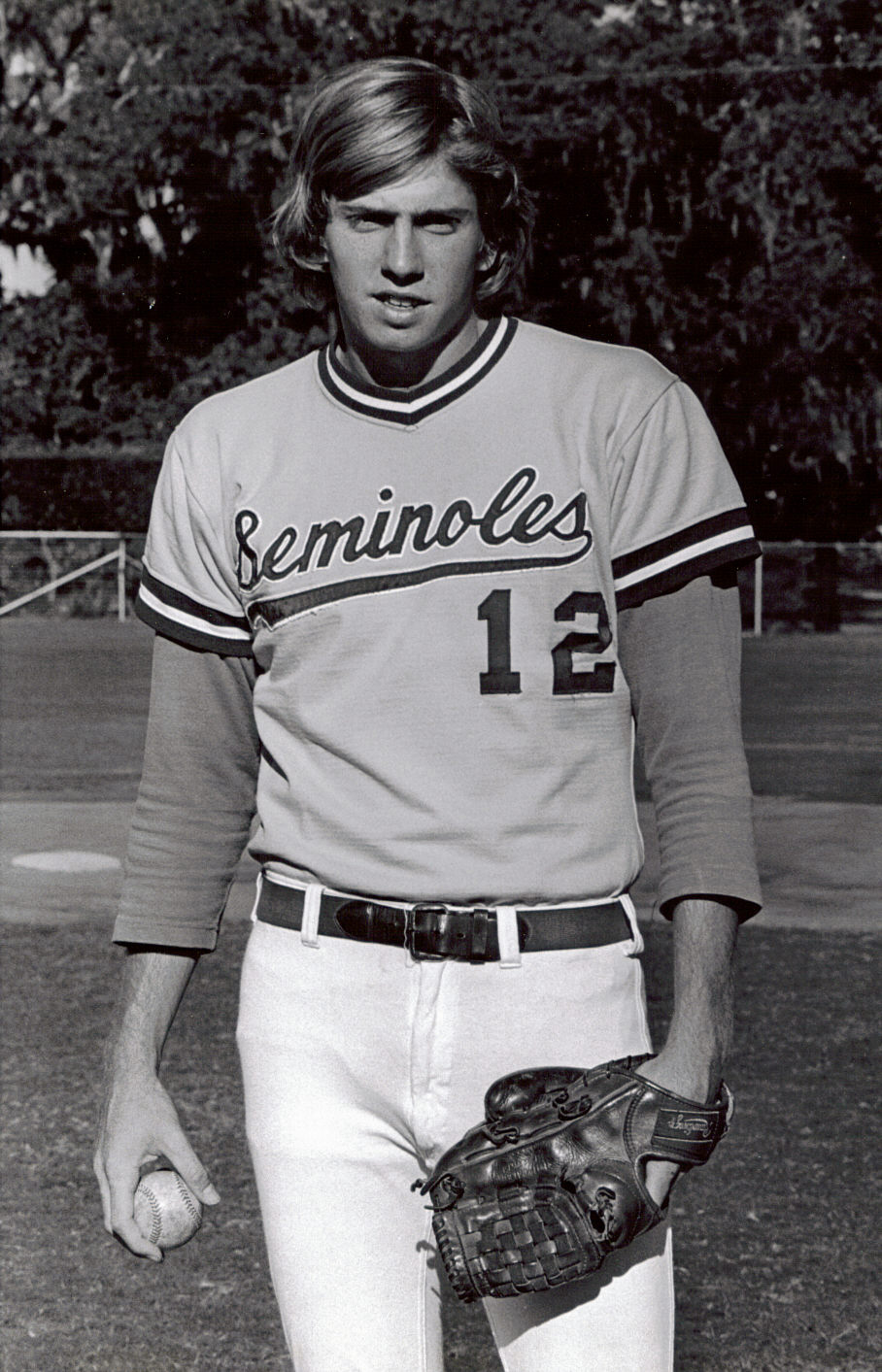
LR I started, and then my last year I was a closer, because we had Danny O’Brien and Larry Jones on that team and they were both 15-0, so …
JH Not a lot left after that.
LR Well, I closed most of the games, so …
JH It’s kind of a theme, in looking at your career: you spent a fair amount of time either strictly as a reliever, or maybe a swing guy. Is that a fair assessment?
LR Yeah, I mean, in AA I started out in the bullpen and then started. And I think I started 12 games and finished 11 [10] or something like that. Then I went to AAA the next year and did the same thing: relieved and started and all that [29g, 14 starts].
JH When the Reds signed you, were they looking at you as a reliever, based on what you’d done at Florida State?
LR Yeah. I mean, that’s pretty much what I figured. But you know, you do whatever you need to do.
JH Because I see 27 appearances, all in relief, in 1975. 41 innings.
LR Yeah. I didn’t start in 1975.
JH And you commented in that iBaseball interview that you felt like your stuff “played” better as a reliever.
LR Yeah. I mean, I did. Just because I jumped up in velocity a little bit, and could eliminate the changeup and just pretty much, depending on the day, it was a curve ball or slider; a lot of times, slider.
So it just simplified the game. And I liked the energy burst you get in relief.
Playing for The Riddler
JH Eugene in 1975 was your first experience with Greg Riddoch. How was it to play for him, considering you guys have had such a long relationship after that?
LR It was a lot of fun. I mean, he really made it fun. And you could tell that it was a short-season team, and everybody got along great, and many friendships remained through the years.
He just had the right knack to bring everybody together in a short time, and it was a lot of fun, and there was a lot of talent on that team. A lot of good players on that team.
JH In fact, one of the guys who was your teammate on that 1975 Eugene team was Barry Moss.
I’m also working on a project with Larry Dierker about the 1987 Salt Lake Trappers. Barry was the hitting coach on that team.
LR Barry was my roommate in AA in 1976.
JH You guys actually were on the same team a number of years, and there was a sort of a core group that got promoted together, more or less.
LR Yeah, until they made the Seaver trade [June 15, 1977] when we were in AAA.
JH After June of 1977, you guys were in good position, but you didn’t win a lot after the trade because Paul Moskau and some other guys went up [to the big leagues] and that kind of left you a little short.
LR Yeah. We were ahead by quite a few games, but couldn’t hang on. And that team was a team that won at every level.
The Reds Way
JH When you were on that 1975 Eugene team — aside from the fact that everybody got along, and Greg had a knack of bringing out the best in people — did you get a sense of his commitment to teaching the game, or anything else that you could particularly put a finger on that made him the right guy to lead that team?
LR Yeah. I mean, you know, anytime you were in the Reds system in the system in those days, 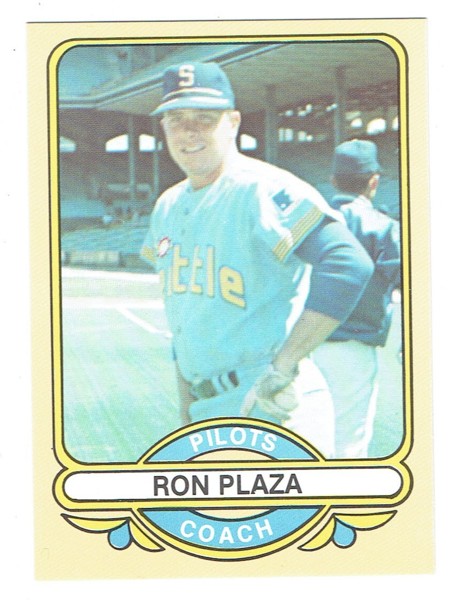 you were going to be taught how to play baseball. The field coordinator, Ron Plaza, made sure of that. He may have been the best teacher of baseball. I had Jack Stallings for a couple of years at Florida State, but Ron Plaza was just an unbelievable teacher. And so all the managers taught baseball. I mean, they understood it. They knew how to teach it.
you were going to be taught how to play baseball. The field coordinator, Ron Plaza, made sure of that. He may have been the best teacher of baseball. I had Jack Stallings for a couple of years at Florida State, but Ron Plaza was just an unbelievable teacher. And so all the managers taught baseball. I mean, they understood it. They knew how to teach it.
And you know, the Reds in those days, they had a lot of rules to follow as far as how you wear a uniform, haircuts, and things like that. That was instituted in the whole program. But they taught baseball at every level.
JH There was definitely The Reds Way. And Plaza was one of the leaders of enforcing The Reds Way, I guess.
LR Absolutely. You know, the people that he hired to do that, did it. And did it really well.
JH He was a really polarizing kind of figure. I’ve talked to a number of guys about him, and they’re either on one side of the fence completely or the other.
It seems like guys either thought he was the greatest instructor they’ve ever seen, and they were always in their corner, or — there’s no in-between. The guy other guys just said, man, that guy — they tried to avoid him if at all possible.
The Wrath of Plaza was something to behold, I guess.
LR Yeah. [laughter] You knew where he stood without having to — but you know, he was a great baseball teacher, and he just didn’t pull any punches. I mean, there were ways to do things, and you did them. We were taught, and that’s how they expected you to do it. But from the baseball side, he was as smart as anybody I had been around. And he was, I guess, somewhat polarizing.
But I think that the people that didn’t really want to give an effort or weren’t into it that much, are the people that he would probably be the hardest on. But everybody was held to a standard, no matter what. So if you didn’t like it, you know, it wasn’t going to be easy.
JH You once said that being instructed by Plaza and working with him was beyond a graduate school of baseball. And that everybody knew when he was around. You didn’t know when he was going to make a visit, but instantly word would get around that he was there, and everybody needed to square up those uniforms and haircuts and get with the program.
LR He’d come in, and sometimes — if he got into town late, it’d be in the second or third inning. He’d walk into a stadium, and probably by the fourth inning, everybody on the team knew he was there. He’d wear a trench coat, and he smoked; he’d have a cigarette dangling from his lip. I mean, you just knew he was there.
JH Blinky, I’ve heard him referred to as!
LR Yeah. He blinked a lot, but I never called him that! [laughter]
JH Ah, no. Mr. Plaza probably would do.
LR Yeah, yeah. Yes, sir, no, sir. But you know, he wanted to be called Ron by the players. He got close to a lot of players, and he was fluent in Spanish, Polish, English. I think he could do a lot of things and had a really good relationship with a lot of guys.
Expecting to win in 1975
JH Back to 1975: anything else in particular stand out about that season and that team?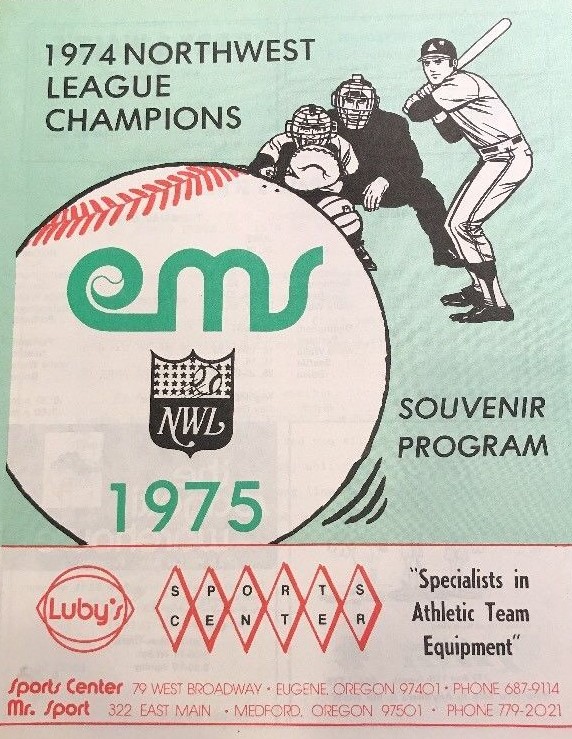
LR Just the overall feeling [that] you expected to win every game and that’s really the way that team rolled, I think. The expectations were to win.
JH And one of the other common themes is that it was so unusual for — not only did people get along, everybody supported each other and there wasn’t the rivalry or the feeling of, okay, you got a 25-man roster and you’ve got 25 independent contractors; it really was a team.
LR That’s exactly — that’s the feeling I had throughout that season. Again, it was my first season of pro ball, so I didn’t know what the rivalries would be like or anything else, but on that team, it was just, everybody was had everybody’s back, and it just made it a lot of fun to play.
JH Did you get involved with that Portland rivalry and the animosity between the two teams?
LR Yeah, I pitched in a lot of those games.
JH The Mavericks were sort of like their name — kind of rough and rowdy — and the Reds were the organized-down-to-a-T sort of team. And that was the oil-and-water kind of thing?
LR I don’t know. I think that’s not really a great characterization. I mean, that they were similar to that, but we could handle ourselves, no matter what. I think maybe they perceived that any Organized Baseball — there might’ve been some jealousy there, because they weren’t in it. I just don’t know. But as far as the rough-and-rowdy stuff and all that, we could deal with that on our own level.
JH And then you guys cleaned them out the second half of the season and then on into the playoffs and took them two in a row for the championship — beat Jim Bouton and all that.
The final game was a 1-0 complete game. Were you surprised not to get in that game at the end, or was it just Okay, everybody’s role —
LR Did John Underwood pitch that game?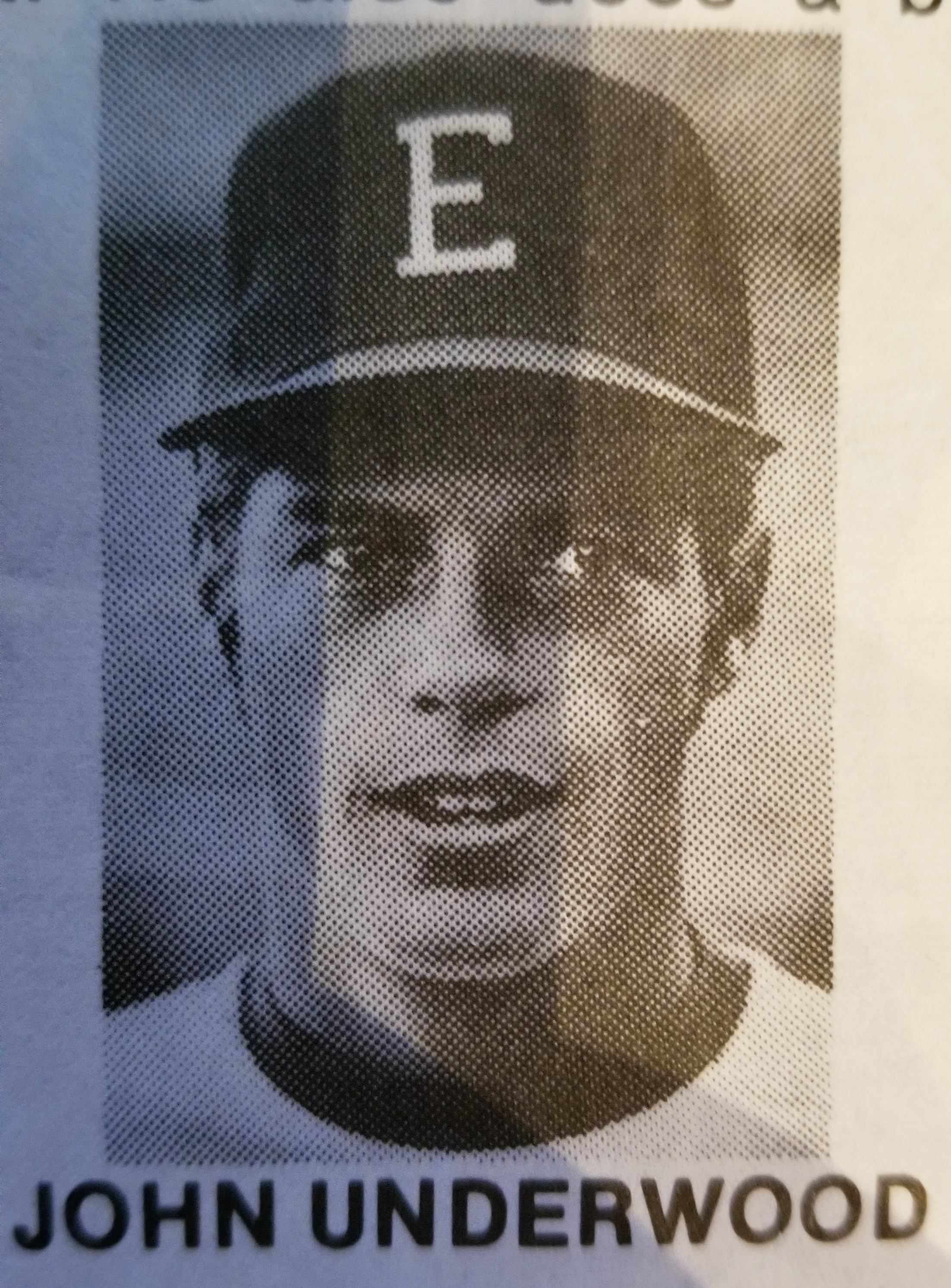
JH Yeah, it was John Underwood.
LR No, he rolled through that game. I was ready to pitch if they needed me, but I wasn’t surprised [that I didn’t].
JH It’s a funny game, when you go back and look at it. There were something like 21 fly-ball outs in that game. And I’ve talked to John about it, and he said, I felt good. I had good change of speed. I kept them off-balance. Because I asked him, was this everybody in Portland trying to play “hero ball,” and you just kept the ball in good spots? and he thought, well, maybe that was part of it, but it also just simply was one of the best games I ever pitched.
LR Yeah. He really pitched, well. I think it brought out the best in him: that kind of game to finish the season.
Moving up, and a long stint in AAA
JH And after 1975, you go on to AA. I assume that was Three Rivers?
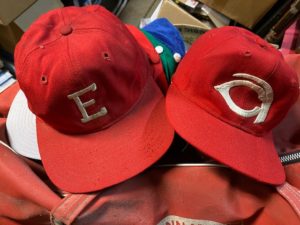
LR Yeah.
JH You were again kind of a swing man – you started and relieved there.
LR Yeah, early in the season. And then the last half, I started.
JH Was there any kind of directive to see if you could start consistently, or how did that work?
LR I don’t know, because in those days we didn’t even have a pitching coach. All I know is, you know, they gave me the ball to start — I think it was a doubleheader game — and then I finished it, and then finished a bunch of games.
JH Then 1977, kind of the same thing: 29 games and 14 starts. That’s the season of the Tom Seaver trade. That’ll mess up a team for sure.
Looking at the Baseball Register stats here, it says that in 1978 you pitched in AA and AAA, but with Cincinnati and San Diego teams. So Amarillo was San Diego in those days in AA, right?
LR Right That was the year I got optioned out to Amarillo, which — in those days they did that stuff. And I pitched there for maybe half the year, and then I got recalled to Indianapolis. I mean, I basically drove from Amarillo to Indianapolis and started a game without unpacking.
It was long, but in those days, who cared? I mean, you just did it.
JH Sure.
Larry pitched in AAA for 10 years — an extraordinary amount of time.
JH So you finished 1978 in AAA: 25 games, 18 starts, and then it sort of starts a long stretch of AAA 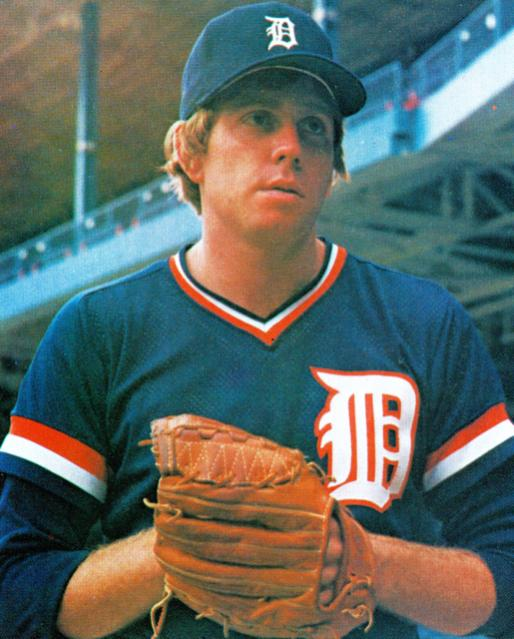 with a couple of “interruptions” in Detroit. What’s your thoughts on spending so much time in AAA? Was there anything you could put your finger on that — were you just blocked, or were there other reasons why you never got more big-league time?
with a couple of “interruptions” in Detroit. What’s your thoughts on spending so much time in AAA? Was there anything you could put your finger on that — were you just blocked, or were there other reasons why you never got more big-league time?
LR I don’t think I was blocked. I just — I thought my talent was borderline. In those days, you didn’t have as many pitchers in the major leagues, and you didn’t have any of the movement up-and-down at all. I mean, I’ve got no excuses. I don’t feel like I ever got blocked. I just felt like it was up to me to get there and to be good enough to do it.
JH And that was in the days when a 10-man staff was considered a luxury in the big leagues. And you look at a season like your 1981 with, I guess that was Evansville, probably. 8-5 with a 3.27. That’s definitely a call up thing. And I see you got five games with Detroit after that.
LR I had a few saves that year, too.
JH Yeah, 15. So by that point, were you pretty well committed to being a reliever full-time?
LR In my mind, yeah. I thought that was always where I should have been.
Injury and becoming a coach
JH The only time I see that you started after that was the last couple of years, a little bit with the White Sox and AAA and three games with the Cubs in 1985. But other than that, it was all pretty much relief.
LR Yeah. And I played winter ball two of those years, and I pretty much wore myself out, you know.
JH Just too much pitching?
LR Yeah. My shoulder ended up — I ended up doing something to my shoulder and it wasn’t anything that you could operate on that would have been worthwhile at my age, so …
JH I remember you were telling Mike LaCoss that you did get injured, and you thought your time was pretty well about done by the end of 1985 anyway. Did you ever get it diagnosed, what really happened?
LR Yeah, I had been diagnosed earlier. I knew what it was. The bicipital groove was worn out, 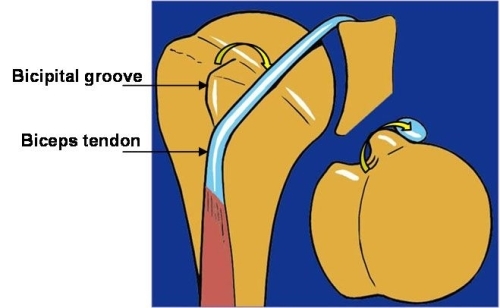 and the tendon just kept popping out and back in. And [it] wasn’t going to be an easy surgery for that, especially in those days. So it was like a two-year recovery, and I wasn’t going to be afforded the luxury of that.
and the tendon just kept popping out and back in. And [it] wasn’t going to be an easy surgery for that, especially in those days. So it was like a two-year recovery, and I wasn’t going to be afforded the luxury of that.
JH No, not in those days, especially when you’d spent so many years in AAA already.
LR Yeah, no chance.
JH But I look at a guy who has that much AAA time, and then the last three years with three different organizations, that’s a guy who’s determined to go until there’s nothing left in the tank.
LR Well, I mean, for one thing I loved playing, so that was part of it. And I just kept learning. I always felt like I’d coach someday. So I just, — I don’t know, it’s just kinda what I did.
JH And you also started helping other players and kind of — it really seemed like it was kind of prep for what you did later, in a way.
LR Yeah. Well, I had always read a lot and talked to people a lot just to see what — just to learn. So [during] those years, I think I probably paid a little more attention to it, but I always had really been interested in the why? Why do things happen? What precipitates it? What works? What doesn’t work? Pretty much, that’s what I followed up on.
JH So was it not as difficult as it would be for some guys when you hit the end of 1985 and you kind made the transition from playing to — I guess you were a roving instructor for the Reds?
I was throwing hard, but it just wasn’t getting there.
LR Yeah, I was the minor-league coordinator. I walked into a really nice job. So it worked out really well. And that helped a lot. But I knew just the last couple of years, pitching in pain and not having any kind of stuff that I was used to — not that it was dominant at any point, but it was decent — but I remember throwing, trying to go up-and-in on guys, and they just hit it 800 feet foul and go, what the hell?
The last couple of years, I knew that, you know: I was throwing hard, but it just wasn’t getting there. [laughs]
JH They’re looking at you: seriously?
LR I mean, there were pitches I threw that didn’t feel good. And it took me a long time to recover [between outings]. So …
JH Yeah, that’s not a good combination there.
Back to the Reds, and a ring in 1990
JH So you feel like you came into a fortunate situation when you got done with pitching and went to the Reds, and then eventually under Lou Piniella — another guy who did a lot for your career — you’re bullpen coach and assistant pitching coach when the Nasty Boys came up, and all of that.
I lived in Cincinnati in 1990 when you guys did the wire-to-wire thing and all that, and the Nasty Boys were big. How was the ride that year?
LR It was incredible! I mean, it was my first major-league coaching job. So I’ll always be indebted to Lou, and Lou and I are pretty good friends. So it was incredible. That team just kind of — in spring training and throughout — just took off. There was no one player that sticks out. If you look at the numbers, everybody’s really similar. Everybody could run and steal 20-25 bases; hit .270-.280; hit 15 to 25 home runs. And we played really good defense.
Eric Davis was just a hell of a player, and Barry Larkin was a young player, and Hal Morris. Joe Oliver behind the plate. And Lou was not gonna put up with anything but winning. I mean, he got that message across rather quickly. [laughter]
JH Yeah, I guess! And Jose Rijo, too. You said that the second half of the season, he was probably the best pitcher in the National League, and carried that right through the playoffs and World Series. You also commented that he threw a lot of sliders, and I remember him having a tremendous amount of arm and shoulder problems. Do you think
throwing all those sliders contributed to that? He seemed to really have a hard time staying healthy after that, but he got it done in 1990.
LR Yeah. He broke his leg in 1991, sliding into second on a steal. And he came back fairly quickly from that. I don’t know if that had anything to do with it. The sliders — he would start games with the intention of using more fastballs, but as soon as trouble hit, it was – his slider was just so good. The temptation to use it when you needed it was always going to be there.
The second half of 1990, he was one of the better pitchers I’ve been around for that half-year. I mean, he pitched us right through the playoffs and the World Series. We had other good starters: Danny Jackson, Tom Browning, guys like that. But with Dibble, Myers and Charlton [the Nasty Boys in the bullpen], Lou recognized what he needed to do without the modern day thought-process of six-innings-and-out.
He managed that team as well as it could have been managed.
JH A nice thing to get a ring your first year, huh?
LR Yeah! I thought it was going to be easy. Little do you know! [laughs] I mean, I knew it wasn’t going to be easy, but …
JH You did get another ring later, in 1997 with the Marlins, right?
LR Yeah, I’ve been fortunate, you know.
Riddoch reunion in Tampa
JH And you reconnected with Greg later on, also. How did that work, and how did that come about?
LR When I got the [Tampa] manager’s job, I hired him as one of the coaches. And he was really helpful. We just had so many players and so much to do, that — and I work people to death, so it was great to have him on the staff.
JH Was there a difference in your relationship? First it’s player-manager, then it progresses to you’re the manager and he’s the coach. Was the working relationship any different?
LR Yeah, it’d been a few years, so we hadn’t seen each other a lot during those years. When he managed San Diego, we got together when I was at Cincinnati, and he was always great to me. So when I got job, I figured it was a good time. But at that point he had some health issues going on, and he didn’t want to say anything. So that was kinda tough.
JH But you were able to make the most of that, for a while anyway?
LR Yeah, absolutely.
JH Did he essentially bring the same skills when you guys worked together later as when he was in Eugene, or is it the same sort of thing? He was just getting started on the field-staff side then. And he developed as well as you?
LR Absolutely. I mean, he had the same skill set; he was going to be the same person, no matter what. That’s why I wanted him there. But you know, it was an expansion team, so there were all new players, and it was a fluid situation a lot. So I think for all of us, it was kind of a learning experience.
JH And he has always stressed, to me and to others, that he considers himself a teacher first. Because I mean, he was a teacher besides being a manager, coach, whatever. But the teaching skills were the most important, and his ability to communicate those things and to try to get the best out of players without being the Marine about it.
So many players have said that he was able to — he could critique your game without it being personal. And so that you didn’t take it the wrong way and they recognized he was trying to help them, rather than be hard on them.
LR No, that’s absolutely true. Yeah. He was a teacher all the way. And not necessarily a disciplinarian. And it wasn’t “his way or the highway” or any of that, but he really had a great knack for it, and he could teach without being threatening to players.
Excerpted from my book The Little Red Wagon: The 1975 Eugene Emeralds.

